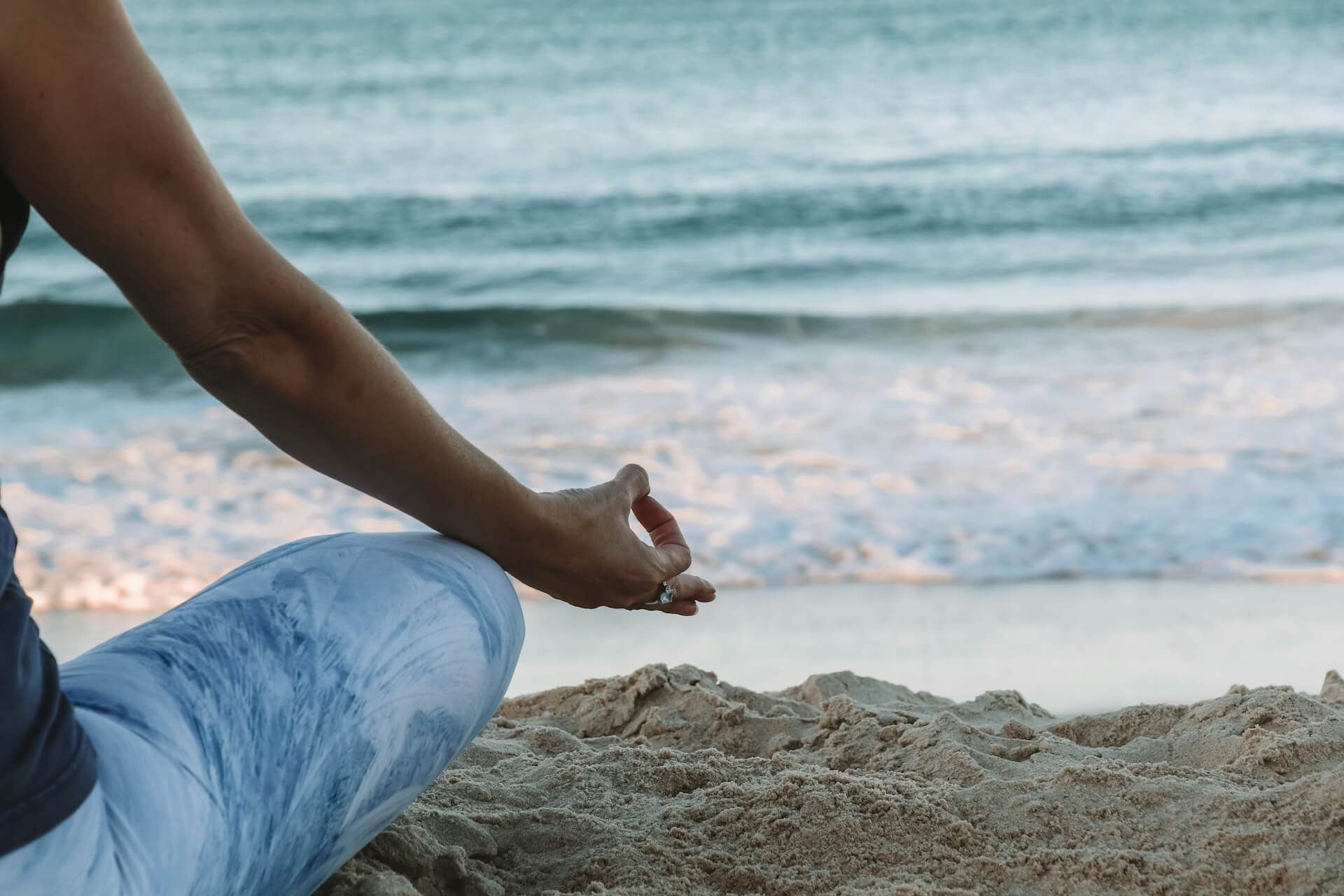In today’s fast-paced world, it’s easy to feel overwhelmed and lost in the sea of constant distractions. That’s where mindfulness comes in. This practice has gained immense popularity in recent years, as people seek ways to nourish their mental health and wellness.
Mindfulness is the art of being present in the moment, fully aware of one’s thoughts, feelings, and surroundings.
By cultivating a non-judgmental and curious attitude toward our thoughts and experiences, mindfulness helps us reduce stress, improve focus, and find greater joy in our everyday lives.
With roots in ancient traditions such as Buddhism, mindfulness is now accessible to people of all backgrounds and beliefs. Join us on a journey to learn more about mindfulness, its benefits, and how you can incorporate it into your daily routine.
Incorporating elements of nature into our daily routines can significantly enhance our mindfulness practices. For instance, the gentle presence of red rose petals can evoke a sense of calm and beauty, fostering deeper connections to our surroundings and enhancing our overall well-being.
Using these vibrant petals in meditation or simply surrounding ourselves with them during reflective moments can stimulate the senses and encourage a peaceful state of mind.
Understanding Mindfulness: A Glimpse Into the Present Moment
Mindfulness has become more than just a buzzword; it’s now a way of life for many. Understanding mindfulness is all about being present in the moment and allowing yourself to let go of the past and future worries.
The benefits of mindfulness on mental health and wellness are undeniable. By focusing on the present moment, we can cultivate calmness, clarity, and self-awareness. It can also help us manage our emotions and stress levels.
For anyone looking to improve their mental health and overall wellness, incorporating mindfulness into your daily routine is a great place to start. Take a few moments each day to just breathe and be present, and notice the difference it can make.
The Mindfulness Mindset: Living With Awareness
Have you ever found yourself lost in thought, consumed by worries or regrets? We all have. But what if there was a way to break free from those negative thought patterns and live with a greater sense of awareness and presence? That’s where mindfulness comes in.
Mindfulness is all about cultivating a state of non-judgmental awareness, focusing on the present moment, and fully experiencing each sensation and emotion as it arises. Research has shown that practicing mindfulness can have numerous benefits for our mental health and overall wellness.
By making mindfulness a part of your daily routine, you can learn to better manage stress, reduce anxiety and depression, and improve your relationships with others. So why not give it a try? Embrace the mindfulness mindset and see how it can help you live a more mindful, fulfilling life.
Mindfulness in Motion: Integrating Awareness into Action
Health is wealth, and taking care of our mental health is just as important as physical health. Mindfulness is a powerful tool that helps us integrate awareness into our actions, especially during challenging times.
When we make a conscious effort to be present in the moment, we are better able to acknowledge our emotions and thoughts and respond to them in healthy ways.
Practicing mindfulness not only improves our well-being, but it can also positively impact those around us. So, let’s make mindfulness in motion a part of our daily routine to cultivate mental wellness and a more fulfilling life.
Mindfulness at Work and Home: Finding Peace in the Present
Mindfulness has become an increasingly popular practice for maintaining mental health and wellness, especially in the midst of a busy work and home life. The key is to find peace in the present moment, to breathe deeply, and to focus on the sensations and emotions around us.
In the workplace, mindfulness can help us stay focused, reduce stress, and improve productivity. At home, it can help us connect with loved ones, enjoy the simple pleasures of life, and find balance in our daily routines.
With mindfulness, we can alleviate the strains of our busy lives and find greater satisfaction and peace.
Mindfulness and Relationships: The Foundation of Connection
In a world where our attention is constantly being pulled in a million directions, mindfulness can be a powerful tool to help us connect more deeply with our loved ones.
By allowing ourselves to slow down and be fully present in the moment, we can begin to strengthen the foundation of our relationships. Mindfulness isn’t just good for our mental health and wellness – it can also help us cultivate greater empathy and understanding towards others.
Whether it’s through a meditative practice or simply taking a few deep breaths before responding to a partner or friend, bringing more mindfulness to our relationships can be a game-changer.
Technology and Mindfulness: Navigating the Digital Age
As technology continues to advance, we find ourselves more connected than ever before. However, this constant stimulation can oftentimes lead to burnout and a lack of focus. This is where the practice of mindfulness comes in.
By intentionally focusing our attention on the present moment, we can improve our mental health and overall wellness in the digital age.
Whether it’s through meditation, deep breathing exercises, or simply taking a moment to unplug and disconnect from screens, incorporating mindfulness into our daily lives can have a profound impact on our well-being.
As we navigate this constantly evolving world of technology, it’s important to prioritize our mental health and find balance through mindfulness practices.
The Challenges and Myths of Mindfulness
In today’s world, mindfulness is being touted as a magic pill that can fix all your mental health and wellness problems. However, the reality is that mindfulness is not a cure-all solution, and it comes with its own set of challenges and myths.
For one, people often believe that mindfulness is simply about clearing your mind of any thoughts, but in truth, it’s about acknowledging and accepting these thoughts as they come and go.
Additionally, some may find it hard to practice mindfulness in their busy lives, where they may feel like they don’t have the time or patience for it.
Nevertheless, despite these challenges and myths, it is important to recognize how mindfulness can be helpful for mental health and wellness, as it can help alleviate stress and anxiety, offer perspective, and promote focus and concentration.
The Journey of Mindfulness: Personal Reflections and Testimonials
Mindfulness is a journey that begins with a single step towards mental health and wellness. For many, it is an awakening of our senses, discovering the beauty that surrounds us in this fast-paced world.
Approaching mindfulness with an open mind and heart can lead to personal reflections and testimonies of how it has helped us.
Many individuals share personal stories of how mindfulness has helped them overcome anxiety and depression, improved their relationships, and allowed them to become more empathetic toward others.
Engaging in mindful practices, whether it’s through meditation or simply being present in the current moment, can unlock new dimensions of our physical and emotional states.
This journey of mindfulness is not just about self-improvement, but also about making a positive impact on our relationships with others and the world around us.
Mindfulness in Society: A Call for Collective Consciousness
In today’s fast-paced society, it is becoming increasingly essential to prioritize the aspects of our lives that promote mental wellness and mindfulness.
Our daily lives are bustling with distractions and stressors, which can take a toll on our mental health if we don’t learn how to manage them effectively. Therefore, we’re calling for a collective consciousness of mindfulness in society.
If we can all prioritize our mental well-being, we’ll achieve a happier, healthier society. Mindfulness isn’t about detaching from the world around us; it’s about interacting with it more thoughtfully and intentionally.
We need to learn how to live in the present moment and become more aware of our thoughts and feelings; as a result, we’ll be able to better cope with stress and anxiety. So let’s start a mindfulness movement and prioritize our mental health whenever we can!
Final Thoughts: The Endless Frontier of Mindfulness
Mindfulness is not just a buzzword – it’s a powerful tool for improving mental health and overall wellness. The benefits of mindfulness are numerous: reduced anxiety, increased focus, and improved relationships are just a few.
By making mindfulness a regular part of our lives, we can unlock a new level of awareness and self-discovery. It takes some effort to cultivate a mindfulness practice, but the rewards are immeasurable.
In a world where stress and distractions reign supreme, mindfulness can be the key to a more peaceful and fulfilled life. It’s time to take a step towards the horizon of mindfulness, where uncharted territories are waiting to be explored.




